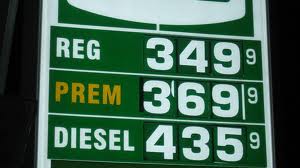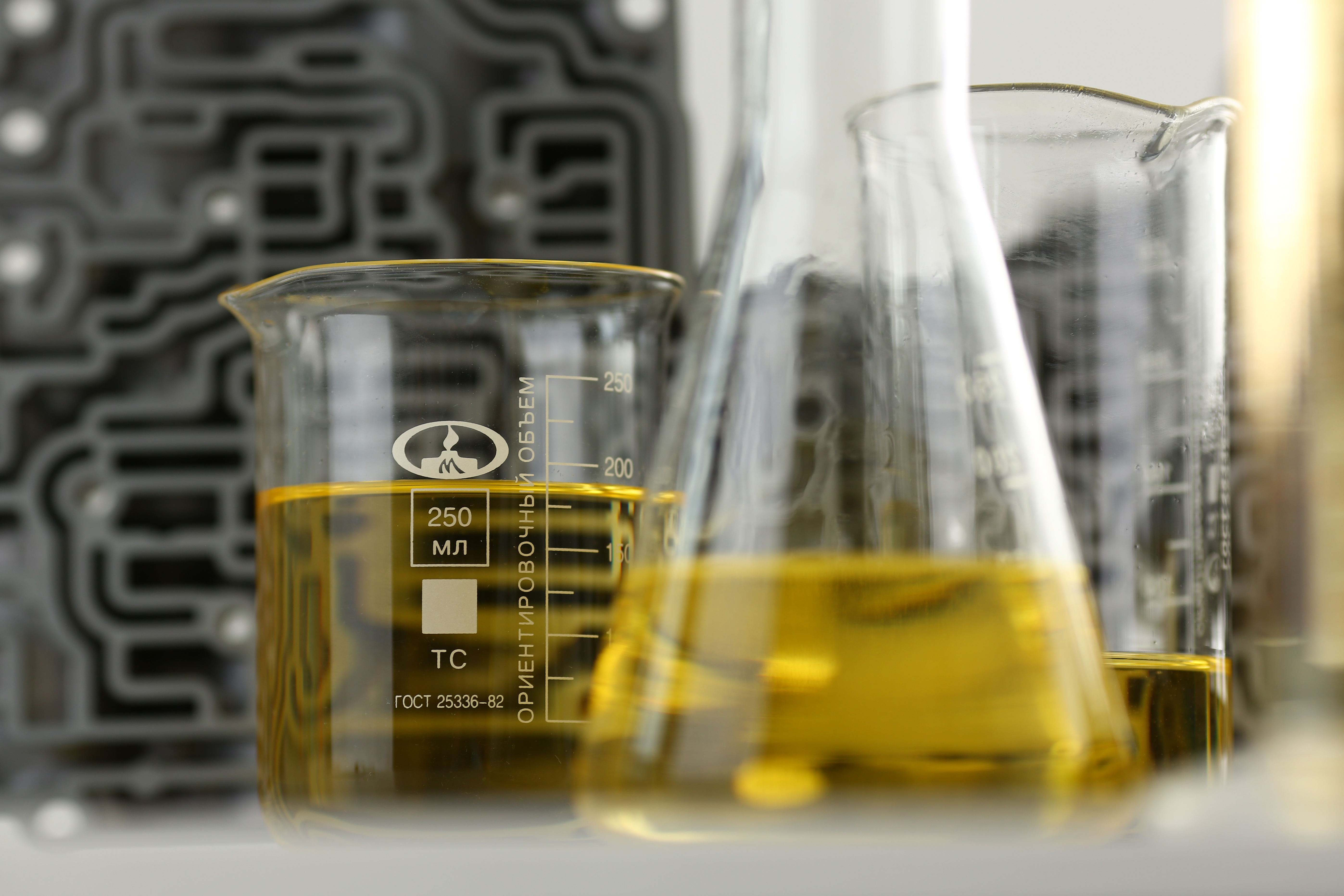What octane gas should I use?
Following up on our previous post about premium gas containing ethanol (or not), there are lots of people out there who swear by using premium gas....

Within the next ten years, analysts project a significant chunk of the new cars on the road will be "self-driving" vehicles, also called autonomous vehicles. We've written a few pieces on this coming trend, and today we have a guest blogger, Alicia Alyn, writing about an aspect of the autonomous car trend that is probably going to get overlooked: their impact on gas mileage.
 The major players in the automobile and tech industries have made developing autonomous (“self-driving”) vehicles the next coming wave in transportation innovation. Tesla, Ford Motor Company and Google are just some of the big names with major investments in the next major innovation that will transform the automotive industry in ways that were hard to imagine a few decades ago.
The major players in the automobile and tech industries have made developing autonomous (“self-driving”) vehicles the next coming wave in transportation innovation. Tesla, Ford Motor Company and Google are just some of the big names with major investments in the next major innovation that will transform the automotive industry in ways that were hard to imagine a few decades ago.
That's not to say that everyone is itching to jump in on this. Not every consumer is completely on-board when presented with the idea that they can sit back in a car and let a computer make all the driving decisions while they surf the internet and drink their morning coffee. And while consumers are always concerned with safety in self-driving cars (how do I know this car isn't going to crash if I'm not controlling it?), convenience and even style are other variables that inform their ideas about autonomous vehicles. Though these aspects are important, there’s another facet which needs focus – fuel efficiency. Gas mileage is always top-of-mind for drivers. Yet the drivers who may be on the fence about self-driving cars may not realize that computer-controlled driving could have a meaningful impact on their fuel economy and their wallets.
According to an article from Movimento (link no longer available), human factors are a major contributor in low fuel efficiency; indeed, they are the #1 determiner. How you drive - stepping on the accelerator or slamming on the brakes at intersections, sudden changing of lanes, starting and stopping when lost and difficulty in parking - these and other similar driving habits all waste fuel, resulting in low fuel efficiency.
Certainly, there are also vehicle factors that meaningfully impact gas mileage as well - using low-quality oil, having an unclean engine or dirty fuel injectors, low tire pressure, excess weight in your trunk. All of these contribute to the problem as well. With respect to these non-human factors, there are immediate remedies to the issues with the cars themselves. Using a high-quality fuel additive allows a car to run on a cleaner engine, leading to increased efficiency and less wasted fuel. Paying attention to little things like tire pressure and “junk in the trunk” can reclaim small but meaningful improvements in gas mileage. If you’re interested in more information specific to these small-but-simple ways to boost your gas mileage, we’ve written a number of previous Bell Performance blogs on that very topic which may help.
The human part of the equation – the single largest influencer for poor gas mileage - this is another matter altogether. It’s been proven over the centuries that human behavior is tricky, at best, to change. So you can tell drivers to change their driving habits, but head knowledge doesn’t always lead to meaningful behavior change, even when there’s a significant incentive in it (spending less money on gas). And this is where self-driving cars come in.
One of the practical end goals of autonomy in cars is smart driving. With a computer maintaining the vehicle's speed and driving patterns without the need for sudden stops, speeding up or changing lanes, the end result becomes enhanced efficiency in driving. We’ve all seen the new vehicles that can park themselves as well, eliminating the need for multiple tries from a human driver, reducing human error and wasted fuel.
The trends toward autonomous driving are also utilizing new tools brought to us by GPS and satellite systems. For example, a concept based on efficient traffic flow was recently presented by IEEE Spectrum using air traffic control patterns as an example. Aircraft follow set routes and spacing so much so that they shift speeds and perform other processes based on a slot-based system managed by air traffic controllers. It has to be this way for the high volume of planes to get where they're going safely and without incident. Why can't similar principles influence the traffic around us? A similar idea for on-road traffic would be trickier to implement on the ground, seeing as there’s no centralized control system for cars, roads and intersections at this time. Yet. The rise of self-driving cars may indeed open the doors to such a development.
Furthermore, the age-old issue of getting lost is becoming few and far between as GPS navigation equipment continues to evolve (but the old joke about men never asking for directions will always be relevant). In an article by Telogis entitled Understanding the Impact of GPS, it was explained how these technologies have become a driving force in the development of the automobile industry in recent years. For autonomous vehicles, GPS is the main element that allows them to accurately assess their current location as well as their destination. GPS continues to constantly advance, in conjunction with other relevant innovations for self-driving vehicles.
Technological advances rarely happen in a vacuum, and the fact that technology is moving forward in so many related areas at the same time bodes well for our society’s driving future.
These advancements all sound really good in theory. But knowing their actual impact on our personal and societal bottom lines requires good data. And there are some smart people working on that.
For example, a study by Carnegie Mellon University (one of the leading innovators in autonomous car research and development) measured the fuel consumption of self-driving cars. Using simulated driving cycles through existing EPA fuel economy tests, they found that the current autonomous vehicles which were geared for a fuel efficiency focus got a 10% increase in fuel efficiency over similar, non-autonomous vehicles going through the same tests.
Regardless of how one feels about them, self-driving cars are the wave of the future. As their technology evolves, the components that work towards fuel efficiency will develop at the same time. By combining smart driving, improved convenience and safety, and better fuel efficiency, autonomous vehicles are indeed poised to upgrade how people travel on wheels.
Alicia Alyn is an Industry Analyst with experience in companies specializing in oil and gas, manufacturing, and tech. She shares experts' insights as well as industry updates through occasional contributions for related publications.

Following up on our previous post about premium gas containing ethanol (or not), there are lots of people out there who swear by using premium gas....

Whenever trends raise their heads in modern society, there’s always a group of outliers who want to take that new practice to the limit. The rise of...

How many different kinds of engine oil additives are there? Do they really work? To answer that question, we first have to separate "finished oil"...